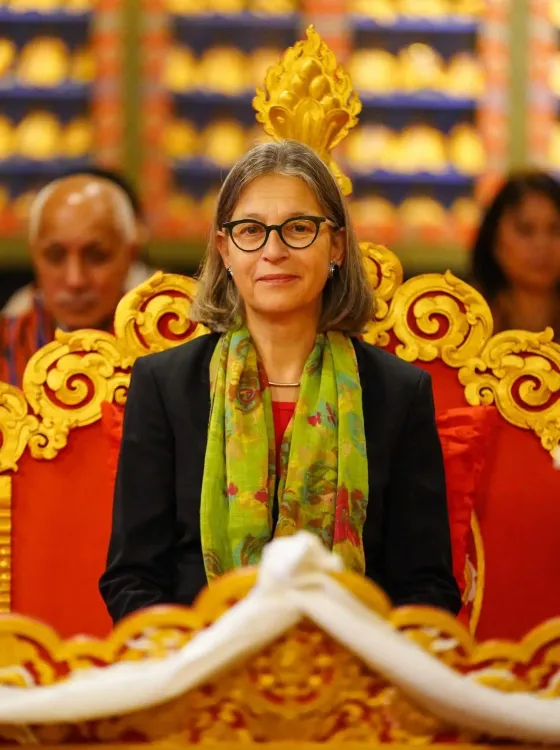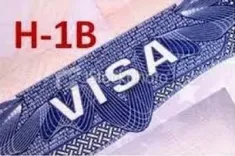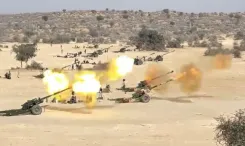How Are India and Austria Strengthening Their Ties in Technology and Workforce?

Synopsis
Key Takeaways
- Austria and India are enhancing collaboration across multiple sectors.
- Austrian firms are establishing production lines in India.
- The partnership aims to merge technology needs with skilled labor supply.
- PM Modi's leadership is recognized for its global outreach.
- Both nations are witnessing a surge in tourism and academic exchanges.
New Delhi, Sep 19 (NationPress) The collaboration between Austria and India has significantly intensified over recent years, becoming remarkably dynamic across various sectors. This was highlighted by the Ambassador of Austria to India, Katharina Wieser, during a conversation on Friday.
In her discussion with IANS, the Ambassador emphasized that the current business landscapes in both nations necessitate close collaboration.
"India is in demand of high-quality tech products and advanced technology, while Austria seeks skilled labor. Merging these needs will benefit both nations," she stated.
Wieser pointed out that numerous Austrian firms are beginning to establish their production facilities in India, which will bring mutual advantages.
"When Austrian companies thrive in India with the assistance of local firms and workers, it will also bolster their parent companies back in Austria," she noted.
This shift signifies not just the import of specific products into India but also the local manufacturing of these goods.
Praising Prime Minister Narendra Modi’s leadership, she remarked that his global outreach is commendable.
"His leadership is noteworthy. Any leader governing a nation as vast as India is destined to be a significant and influential figure," remarked the Ambassador.
Prime Minister Modi visited Vienna last year, and there are hopes for a reciprocal visit soon, she added.
Last July, PM Modi made a historic trip to Austria, marking the first official visit by an Indian Prime Minister in 41 years.
During this visit, several agreements were executed to enhance cooperation between the two nations.
Both countries are experiencing a notable increase in engagement across sectors such as tourism, academia, and scientific collaboration.









